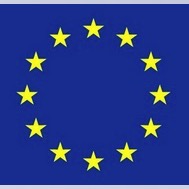30/11/2018 - Projects
No Gender Gap!: The Erasmus project on women&technology

 Reading time: 2 minutes
Reading time: 2 minutesThe Erasmus + project No Gender Gap!, has been launched by Partner Building Bridges Association (Spain), Scuola di Robotica (Italy), Weltgewandt (Germany) and the International Labour Association (Netherlands).
NO GENDER GAP!
The project No Gender Gap!, co-funded by the Erasmus+ programme of the EU, has been launched by the partnership formed by Building Bridges Association from Spain, Scuola di Robotica from Italy, Weltgewandt from Germany and the International Labour Association from the Netherlands.
The project will offer a set of competences for the professional development of the training curricula in women. More specifically, No Gender Gap will aim at improving the attractiveness of the STEM disciplines (Science, Technology, Engineering and Mathematics) using robotics and automation, which have proven to be a means of successful involvement. Also, digital literacy and critical thinking will be promoted, and the teachers involved will improve their professional competences through new methodological approaches.
The project is aimed at both educators and women at risk of social exclusion and belonging to disadvantaged groups (eg. unemployed, victims of gender violence, refugees, without university studies, residents of rural areas) who want to improve their professional skills in a sector where the high demand in the world of ICTs can significantly reduce the unemployment rate. The partnership will work in the realization of a MOOC for the creation of a robot. Besides, a methodology guide including innovative tools and approaches for teachers will be created. The partnership will also work on the recognition system of the competences acquired and each of the partners will experience an improvement in their operational capacity thanks to the internationalization of their activities.
The partners involved in this project, who had their first transnational meeting in Madrid, Spain, between the 29th and the 31st of October, and who will meet again in Genoa, Italy, in April 2019, will work together in this project until September 2020.
WOMEN&TECHNOLOGY: THE ISSUES
Technology and digitalization will be the seed for new jobs in the coming years. Specifically, according to Randstad, 390,000 direct jobs related to science, technology, engineering and mathematics only in Spain. However, if the trend does not change radically in a short time, most of these positions will be filled by men, and therefore, the gender gap will only grow. Only 15.4% of the specialists in information and communication technologies (ICT) in Spain were women in 2016.
A level slightly lower than that of the European Union (EU) which stood at 16.7%, according to Eurostat. The figures show that women are "underrepresented" among ICT specialists in all Member States. This contrasts strikingly with the proportion in total employment. According to Eurostat data, both genders are more equal in the results of generalized employment (53.9% of men and 46.1% of women). Through this project we propose to include a set of basic competences for the professional development of the training curricula in women. For this reason, we have constituted a partnership composed of entities with experience in training and integration of women, eager to be able to contribute to their know-how with a transnational project.
NO GENDER GAP! objectives are the following:
- Improving the attractiveness of the STEM disciplines (Science, Technology, Engineering and Mathematics) through the use of robotics and automation, which have proven to be a means of successful involvement. -
- Promote digital literacy and critical thinking in women, especially those in situations of social exclusion and belonging to disadvantaged groups, thus reducing the gender gap and improving access to the labor market; - Improve teachers' professional competences through new methodological approaches.
- Create new international approaches aimed at reducing gender inequalities in access to and participation in new technologies.
- Attract women's attention to the ICT industry and especially in robotics, emphasizing those activities with more possibilities of achieving an effective insertion in the labor market.
- Offer training centers with a gender perspective that allows them to rethink their formative approach and seek opportunities for a more equal sector.Establish advisory measures that facilitate the transition of the technology industry towards greater awareness and gender balance.Increase the recognition of competencies and create the conditions that allow the realization of new programs with greater performance.
The project is aimed at both educators and women at risk of social exclusion and belonging to disadvantaged groups (eg. unemployed, victims of gender violence, refugees, without university studies, residents in rural areas) who want to improve their professional skills in a sector where the high demand by companies in the world of ICTs can significantly reduce the unemployment rate.

